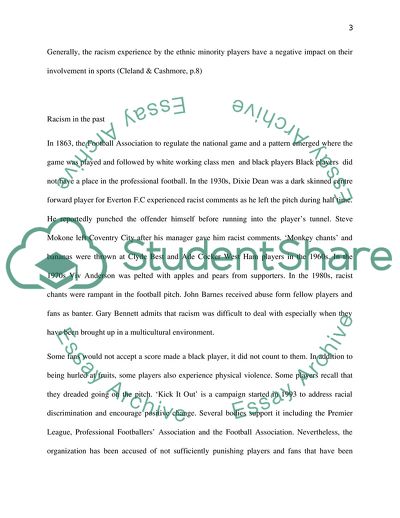Cite this document
(Racism in UK football league Coursework Example | Topics and Well Written Essays - 2500 words, n.d.)
Racism in UK football league Coursework Example | Topics and Well Written Essays - 2500 words. https://studentshare.org/social-science/1851000-racism-in-uk-football-league
Racism in UK football league Coursework Example | Topics and Well Written Essays - 2500 words. https://studentshare.org/social-science/1851000-racism-in-uk-football-league
(Racism in UK Football League Coursework Example | Topics and Well Written Essays - 2500 Words)
Racism in UK Football League Coursework Example | Topics and Well Written Essays - 2500 Words. https://studentshare.org/social-science/1851000-racism-in-uk-football-league.
Racism in UK Football League Coursework Example | Topics and Well Written Essays - 2500 Words. https://studentshare.org/social-science/1851000-racism-in-uk-football-league.
“Racism in UK Football League Coursework Example | Topics and Well Written Essays - 2500 Words”. https://studentshare.org/social-science/1851000-racism-in-uk-football-league.


